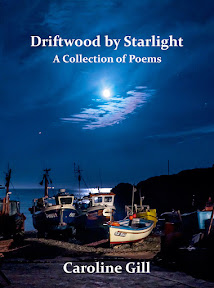I am a Newcastle graduate and recently wrote a poem for last Saturday's 2020 Alumni Day of Action. Climate Writer in Residence for the University and New Writing North, Linda France, invited graduates to send in short poems responding in some way to the Climate Crisis.

I received an email at the end of last week with a pdf copy of One Planet, an eBook anthology containing new ecopoems, with a Foreword by Linda France. It includes my contribution, 'Silence on the Sand', about the decline of the Curlew.
It may seem strange, perhaps even ironic at first, to read that Linda describes the poems as a 'source of hope'. If one reads on, however, it becomes clear that it is our sense of connectedness as a body of writers, both to each other and to the world in which we live, that offers a glimmer of light.
In our endeavours as a global community faced with the task of stemming the tide of the climate crisis, we are stronger together. We all have a part to play. In the wider scheme of things, poetry is, as it always has been, one medium through which issues can be aired in fresh and meaningful ways.
I chose to make the Curlew the focus of my poem because I associate this iconic bird with sightings in Northumberland, especially around Budle Bay and the sweep of coast around Holy island (which is where I took the photograph above). The Curlew's haunting cry never fails to send a shiver down my spine. I have also watched and heard Curlews in places beyond Northumberland, notably on the mudflats in Laugharne, underneath the Boathouse home of Dylan Thomas.
This bird is marked 'red' on the RSPB site for UK conservation. If you would like to help this iconic species of our coastlines and mudflats, you might like to take a look at these suggestions from the RSPB. The British Trust for Ornithology (BTO) have provided an informative Curlew factsheet here.
One Planet, edited by Linda France and produced by Newcastle University in October 2020, contains 27 poems for the planet. It can be viewed online...
- here at Yumpu (press 'read' and flick arrows to start).
- here on issuu (you may want to press 'full screen'. Once again use the arrows to go backwards or forwards).


















